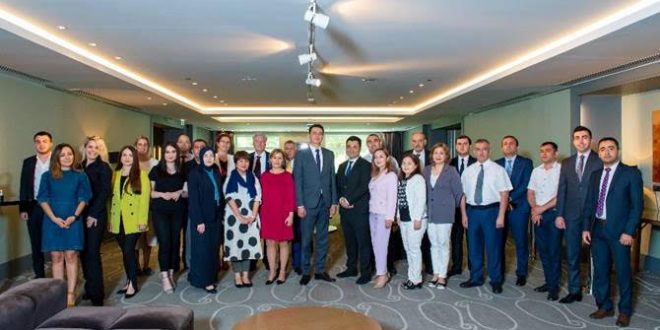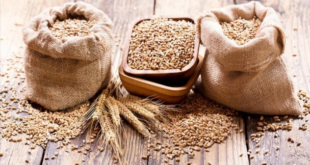Understanding the environmental and gender dimensions of pesticide use is essential to promoting green agriculture in Central Asia and Türkiye…
Press release…
A three-day meeting focusing on the environmental and gender dimensions of pesticide use in Central Asia and Türkiye is taking place within the framework of the FAO project “Lifecycle Management of Pesticides and Disposal of POPs Pesticides in Central Asian countries and Türkiye”.
5 July 2022, Ankara – The event held in Baku, Azerbaijan, represents the first in-person meeting of the regional Project Steering Committee (PSC) since the outbreak of the pandemic, and will welcome representatives of the project countries – Azerbaijan, Kazakhstan, Kyrgyzstan, Tajikistan and Türkiye. The PSC facilitates project coordination and joint decision-making and works towards regional cooperation and cohesion in the field of pesticide management across Central Asia.

This second regional PSC meeting provides an opportunity to implement two training workshops for stakeholders – the first on the safeguarding of obsolete pesticides and the second on the gender dimensions of pesticide use.
Regarding the obsolete pesticide workshop, Tania Santivanez, FAO Agriculture Officer and lead technical officer of the project, explained that “repackaging obsolete pesticides and securing them in a safe and controlled area is an important step to prevent health hazards and environmental risks in the region until a viable disposal option becomes available. It is therefore crucial to increase the knowledge of responsible government staff about proper planning and implementation of safeguarding.”
Melek Cakmak, Head of Partnership and Liaison Office and FAO Representative in Azerbaijan, elaborated on this topic: “Due to lack of proper management and planning in pesticide production and use during the Soviet period, a significant number of obsolete pesticides are considered to present serious hazards to both environment and human health in all Central Asian countries and Azerbaijan.” The safeguarding project addresses this issue by creating sustainable solutions to support beneficiary governments in obsolete pesticide management.
Jafar Maharramov, Deputy Chairman of the Agrarian Services Agency under Ministry of Agriculture, reiterated the importance of the project: “Together with FAO, we aim to work towards more sustainable management of obsolete pesticides in Azerbaijan. Our recent safeguarding activities are just the beginning of this important collaboration.”
Photo: ©FAO / Jangi landfill
The three-day meeting also presents an opportunity to demonstrate safeguarding in practice for the training participants. The last day includes a field visit to Jangi landfill, where 217 tonnes of liquid polidofen – an old Soviet DDT-based pesticide – and other long-living pesticides are now being contained for final disposal according to internationally recognized best practices.
The workshop has been developed to enable the participants to learned about the risks posed by obsolete pesticides, different types of containment, the selection and use of personal protection equipment, site zoning, tools and equipment, storage, transportation, waste identification and acceptance criteria, and other technical aspects of safeguarding.
The second training workshop on gender and pesticide management highlights the differences in exposure risks for women and men – which have long been underestimated in the region. The workshop consists of two sessions: ways to promote gender equality in future actions to improve safe pesticide use, and the collection of end user data on pesticide exposure to shed light on the ways in which women and children are affected by pesticide mismanagement.
Together, the two workshops and the overall impact of the project will provide participants with the stimulus to create change for better pesticide management in the region.
 THE GLOBAL WINDOW OF TURKISH FOOD AND AGRICULTURE The Global Window of Turkish Food and Agriculture Sector
THE GLOBAL WINDOW OF TURKISH FOOD AND AGRICULTURE The Global Window of Turkish Food and Agriculture Sector









